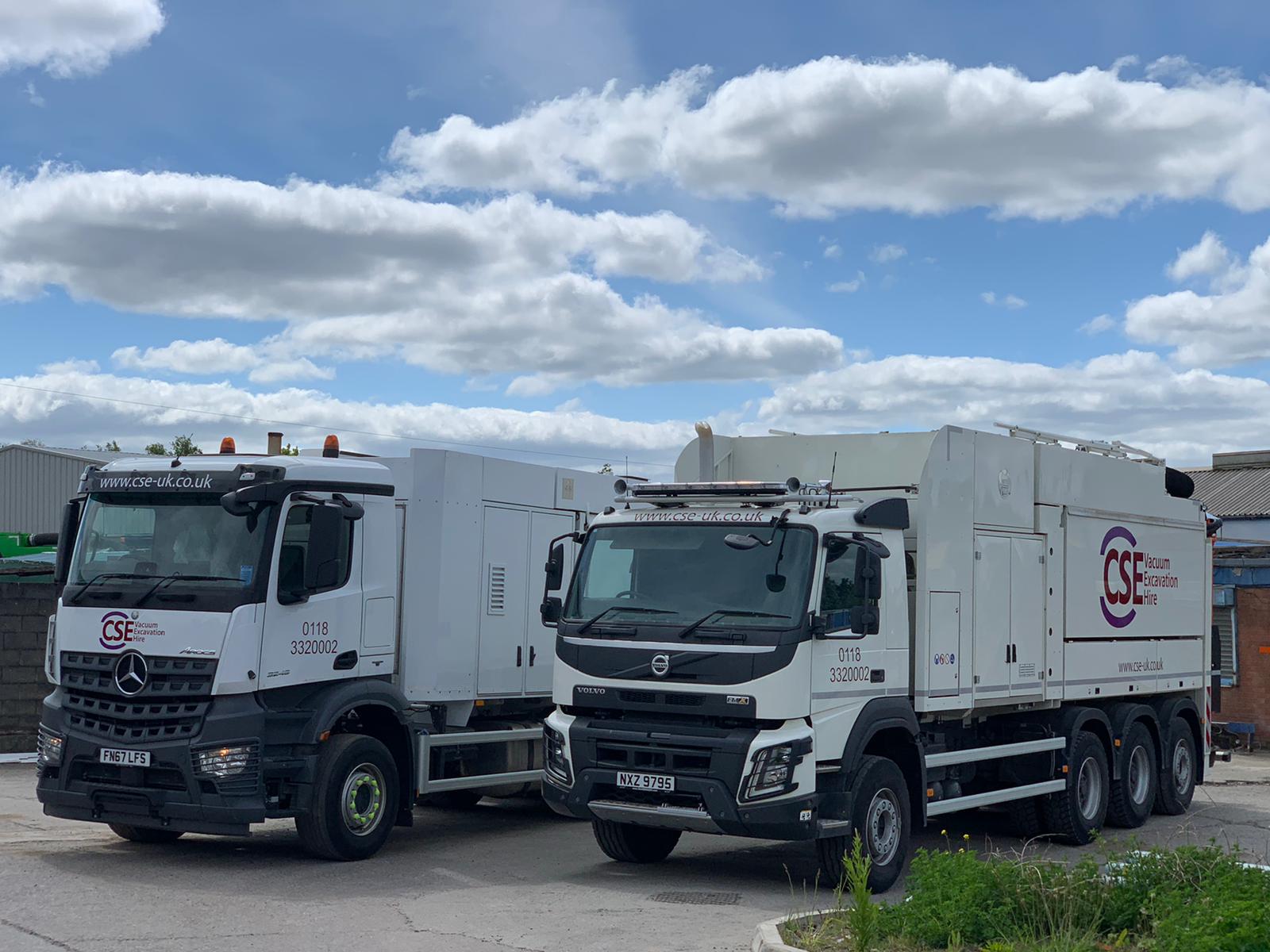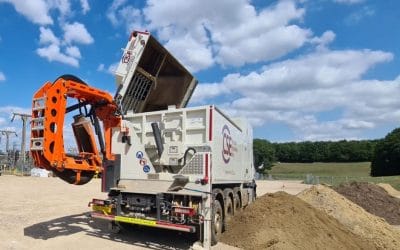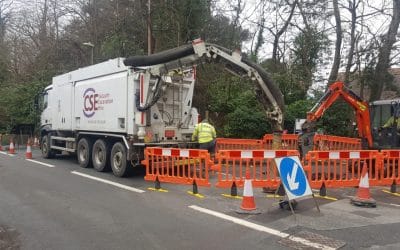Vacuum Excavation is guaranteed to provide a safer, low-risk alternative to traditional excavation techniques such as manual digging. With the use of high-suction powered trucks, the CSE team will expertly lift away the ground and will ensure that there is little risk of damage or personal injury. Vacuum Excavation is the safest, fastest, and most economical method of excavation. In this article, we will discuss what is vacuum excavation and how vacuum excavation works.
For use in undertaking roadworks and utility line installation, vacuum excavation is used to expose the service so that any repairs can be performed in an efficient manner. Whether your company wishes to excavate 1 metre of cable or the entire road, our vacuum excavator has the capability to assist your team on-site. The process is far safer than if a team were to manually dig and has become a popular technique for excavating the ground surrounding delicate cables.
Our advanced technology provides precision excavation through the use of the remote-controlled excavator arm. When the underground utility lines have all been located and marked clearly, the vacuum excavator removes the ground material for quick repair and maintenance. It is worth noting that the no-dig vacuum also reduces noise and disruption to the surrounding area, as well as limiting vibrations that may lead to future damage on or around the working sites.
Vacuum Excavation offers a faster, more cost-effective solution than manual hand digging. A standard Vacuum Excavation can remove 2m3 of soil per hour, while an inbuilt skip can hold up to 10m3 before it needs to be emptied. In short, one Vacuum Excavation vehicle will complete a job in a fraction of the time that it would take a team of labourers or a digger.
Another beneficial aspect of Vacuum Excavation Rental is that it is a significant time saver.
If you would like to enquire about any of our systems or hire our team for work, please get in touch with a member of our team who will be happy to answer any questions.
How Vacuum Excavation Works
The vacuum excavating process is a dual-purpose method and that means that it does two things at the same time. It will use pressurised air to break up soil and underground material before it is then vacuumed up and away from the area. The trucks contain both a compressor and a vacuum system and they are designed to offer a safe and efficient way of digging through materials to expose cables that are buried underground.
It is a unique process as the risk of damaging cables is reduced as the high-pressure air is powerful enough to break up the soil without damage. As a result, soil disturbance is reduced, making it an efficient and effective way of removing soil in order to access utilities. Once the soil and debris have been removed through suction, the project can progress.
What is a Vacuum Excavation Truck?
You might have an understanding of what vacuum excavation is at this point but you might be wondering what is a vacuum excavator and how they work. Essentially, a vacuum excavation truck (also known as a sucker truck or a suction excavator) has a special system located on board that uses a compressed air lance as well as a waste storage chamber and air vehicle fans. Finally, it also has a vacuum suction and they come in a range of sizes, enabling them to remove varying volumes of debris.
Process Requiring Vacuum Excavator
Suction excavation can be used in a range of projects. It is a flexible solution that can help you to deal with the challenges that your project might face. Therefore, if you are undertaking a project that requires any of the following, then suction excavation is the right choice for you:
- Locating and measuring underground utilities,
- Excavating below a standing building, or remote excavation,
- Cleaning valve boxes and catch basins,
- Carrying out repairs to sewer lines,
- Construction debris removal,
- Cleaning environmental boring holes,
- Surveying,
- Geotechnical drilling,
- Potholing,
- Trench digging with precision.
Ready to Hire a Vacuum Excavation Truck for Your Project?
If you have a need for vacuum excavation work then we have the right solution for you. We can assist with all types of vacuum excavator work as we have a range of vacuum excavation trucks available for any UK location that is designed for a range of projects. For professional vacuum excavator rental, get in touch with us to see how we can help you.
If you would like to inquire about any of our systems or hire our team for work, please get in touch with a member of our team who will be happy to answer any questions.





